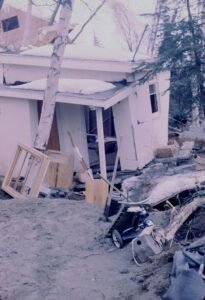The Impact of the Burma Earthquake
The 7.6 magnitude earthquake that struck Burma on March 27 was the strongest in decades, causing thousands of deaths and untold numbers of injuries. Infrastructure has been severely affected, with roads and medical facilities reduced to rubble. The emergency response was initially confused, but as the damage becomes clearer, it is becoming apparent that urgent medical aid is needed more than ever.
The Challenge of a Health System Under Pressure
Despite the urgent need for medical care, Burma’s healthcare system is significantly constrained. Years of political strife have led to the imprisonment of many health professionals, who face charges related to anti-government protests and violations of repressive laws. This exodus of medical experts has left hospitals critically understaffed.
The Future of Incarcerated Physicians
With dozens of doctors imprisoned for participating in pro-democracy demonstrations, their absence has left an irreplaceable void that is now being felt even more keenly in the aftermath of the earthquake. Human rights organizations have stated that the release of these professionals is not only a matter of justice, but also urgently needed to address the current health crisis.
The international medical community has repeatedly called on the Burmese government to secure the release of the detained doctors, however, to date there has been no positive response. In the meantime, the Burmese population is facing an escalation of preventable illness and death due to lack of adequate medical care.
International Response and Humanitarian Aid
The earthquake and the situation of the imprisoned doctors have captured global attention. Several international organizations have pledged humanitarian aid, but face logistical challenges due to the country’s political instability. Despite these obstacles, work is underway to send medical supplies and personnel.
Health experts have stressed the importance of coordinating humanitarian efforts to provide the Burmese people with the necessary resources at this critical time. Rebuilding collapsed medical facilities and implementing urgent measures to contain disease outbreaks are key priorities.
Actions for the Future
As Burma faces another devastating test of its resilience, the international community must continue to monitor the situation of the imprisoned doctors and take steps to secure their release. Diplomatic interaction and global pressure are vital to secure the release of these much-needed health professionals.
Investing in rebuilding the medical infrastructure is also crucial to ensure sufficient health care service for the hundreds of thousands of people affected by the earthquake. Ultimately, true success will depend on the world’s ability to come together, providing strong and determined support to a country struggling with the rubble of its past and the looming crises of the present.


